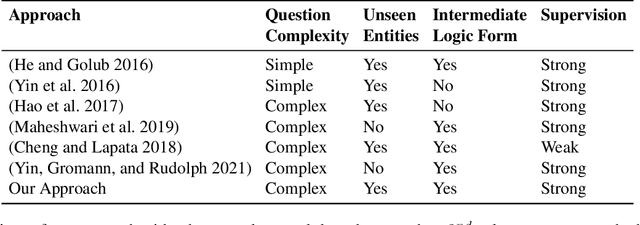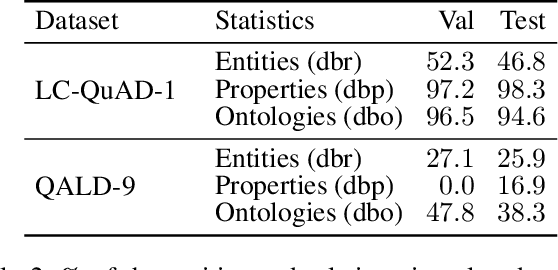Knowledge Graph Question Answering via SPARQL Silhouette Generation
Paper and Code
Sep 06, 2021



Knowledge Graph Question Answering (KGQA) has become a prominent area in natural language processing due to the emergence of large-scale Knowledge Graphs (KGs). Recently Neural Machine Translation based approaches are gaining momentum that translates natural language queries to structured query languages thereby solving the KGQA task. However, most of these methods struggle with out-of-vocabulary words where test entities and relations are not seen during training time. In this work, we propose a modular two-stage neural architecture to solve the KGQA task. The first stage generates a sketch of the target SPARQL called SPARQL silhouette for the input question. This comprises of (1) Noise simulator to facilitate out-of-vocabulary words and to reduce vocabulary size (2) seq2seq model for text to SPARQL silhouette generation. The second stage is a Neural Graph Search Module. SPARQL silhouette generated in the first stage is distilled in the second stage by substituting precise relation in the predicted structure. We simulate ideal and realistic scenarios by designing a noise simulator. Experimental results show that the quality of generated SPARQL silhouette in the first stage is outstanding for the ideal scenarios but for realistic scenarios (i.e. noisy linker), the quality of the resulting SPARQL silhouette drops drastically. However, our neural graph search module recovers it considerably. We show that our method can achieve reasonable performance improving the state-of-art by a margin of 3.72% F1 for the LC-QuAD-1 dataset. We believe, our proposed approach is novel and will lead to dynamic KGQA solutions that are suited for practical applications.
 Add to Chrome
Add to Chrome Add to Firefox
Add to Firefox Add to Edge
Add to Edge